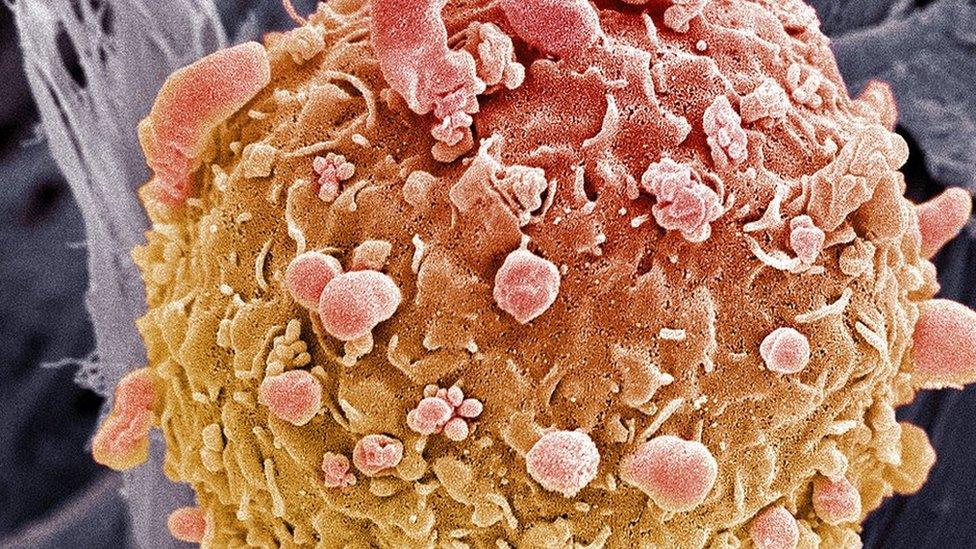Region's high skin cancer rates focus of campaign
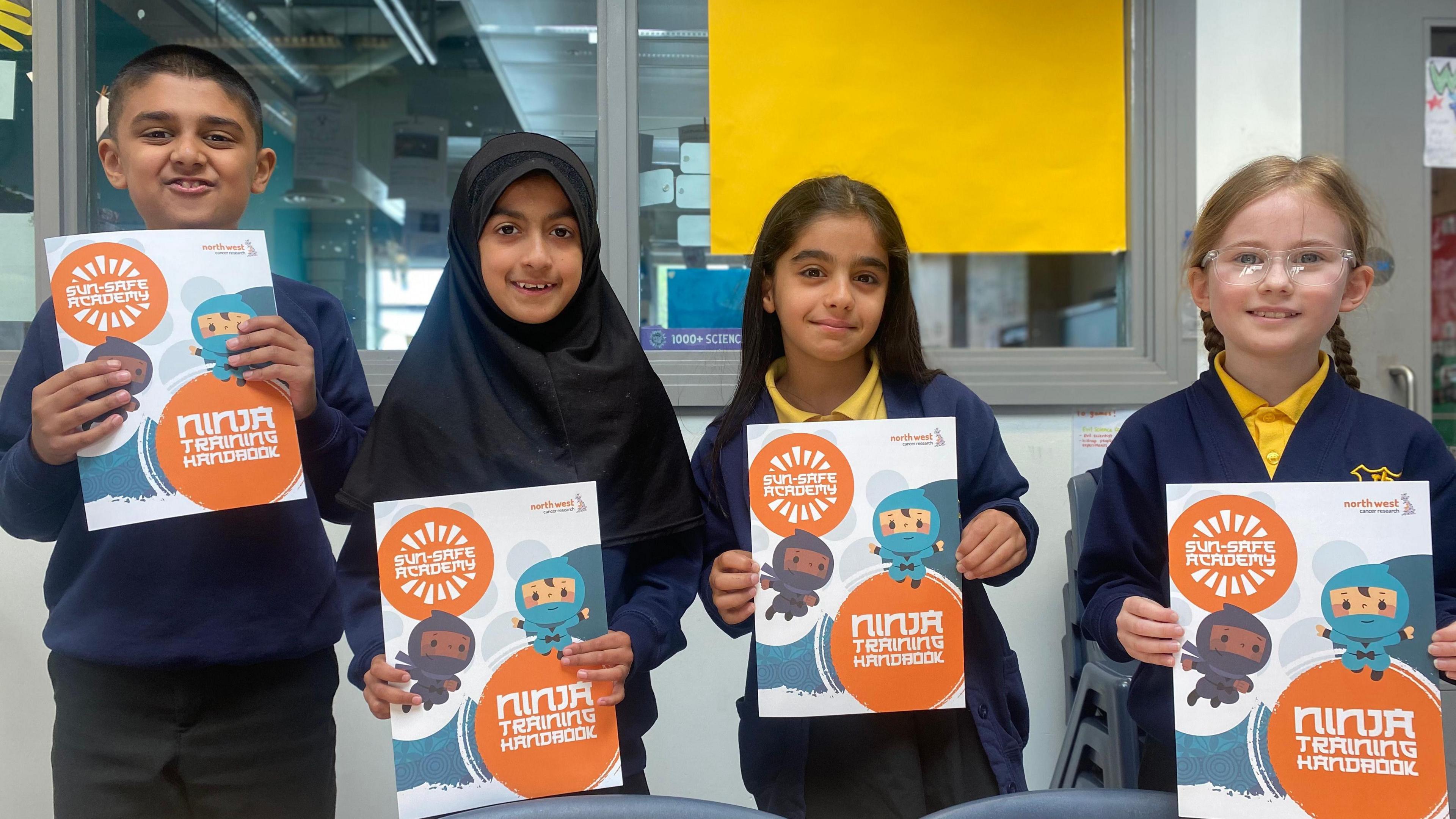
Aqeeh, Zoya, Naraz and Freya have been learning about sun protection at a school in Manchester.
- Published
Schoolchildren are being taught how to protect themselves against the sun as an awareness campaign begins in a region where skin cancer rates outstrip the rest of England.
North West Cancer Research data showed people in the north-west of England are 13 per cent more likely to develop skin cancer than the rest of the country.
Pupils at Acacias Community Primary School in Manchester have taken part in lessons on SPF and eyewear.
Kara Newton from the charity said the children could also help by "speaking to their grown ups" about the need to stay safe.
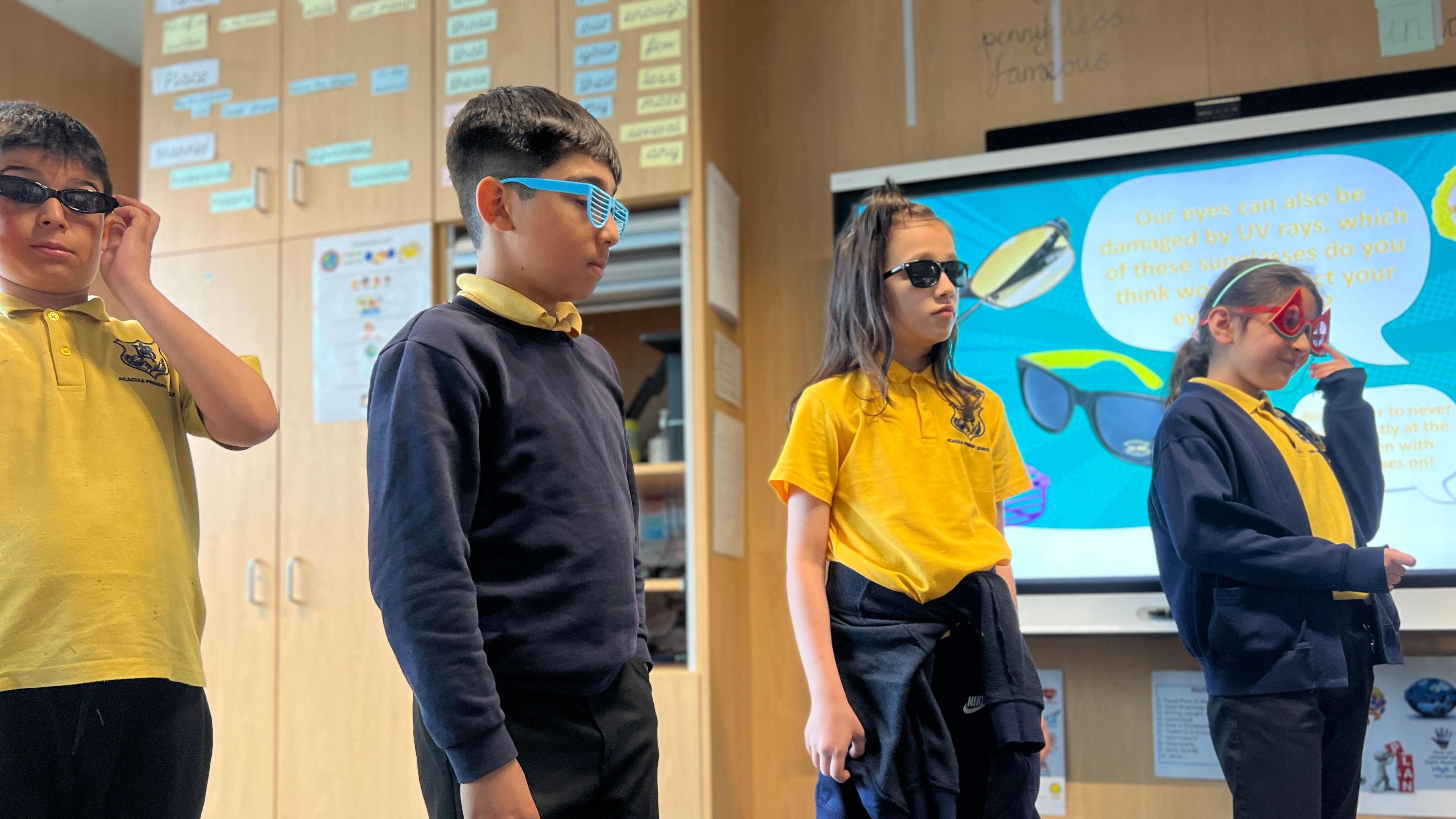
Pupils at Acacias Community Primary School in Manchester practice wearing the correct eyewear
Children have learned about which sun protection factor is best and when to apply suncream as part of the Block the Sun, Not the Fun campaign.
"Sunglasses or no sunglasses, you cannot look at the sun”, Aqeeh, 9, told BBC Radio Manchester.
Naraz, 8, said she would tell her mum and dad that "when you get sun cream, you should get factor 50", while nine-year-old Freya said wearing sun protection was important "even when it's cloudy".
Ms Newton said the campaign was "really trying to encourage" families to wear suncream daily between March and October to protect themselves.
She said parents were often stringent putting cream on their children, but less so themselves.
"We also find people have got the message for going abroad, but we don’t really feel that it has when in the UK," she added.
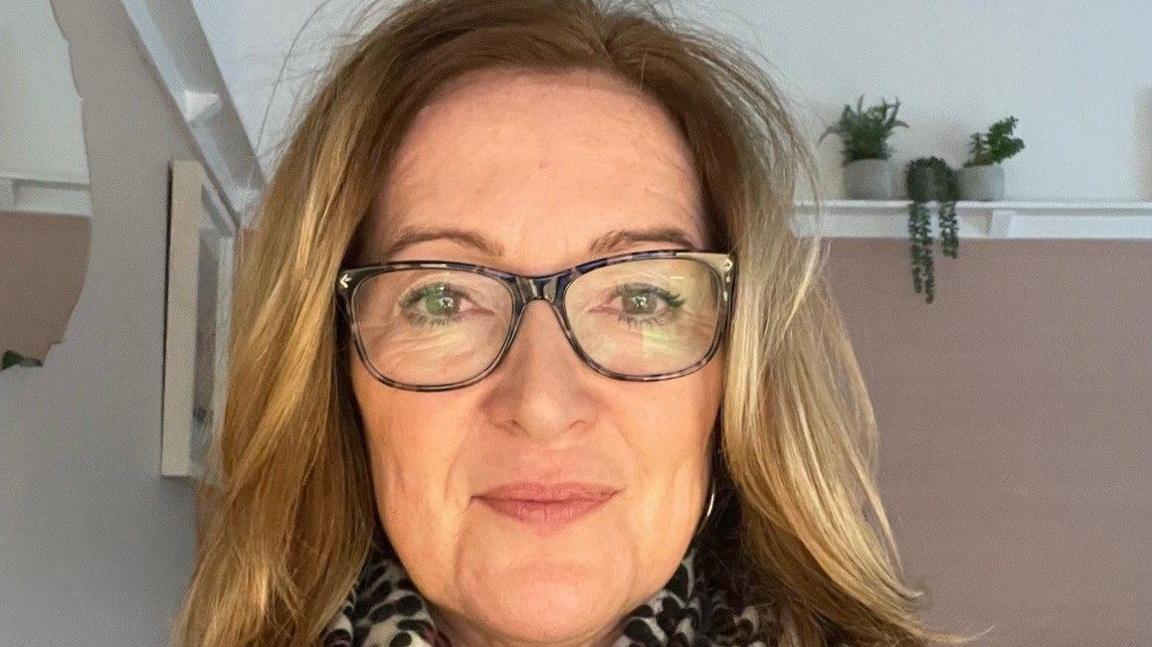
Martina Franey who was diagnosed with skin cancer said sunburn was "almost normal" when she was growing up
North West Cancer Research figures highlight Liverpool as having rates that are 35% higher than the national average.
Martina Franey was diagnosed with skin cancer in 2020, after noticing a small, itchy lesion on her back.
The 54-year-old mother of two said in the 1970s and 80s it was "almost normal to get sunburnt" to "create a base for your tan".
Her cancer has been treated and she is backing the campaign to raise awareness of the risks of sun damage.
Cheshire has rates of 32% and Lancashire’s skin cancer rates are 15% higher than the rest of England, while Cumbria's were 33% higher.
Tips to protect yourself offered by the charity including wearing a suncream of at least SPF 30, limiting time in the sun between 10:00 and 15:00, and wearing a hat and sunglasses.
Alastair Richards, CEO North West Cancer Research, said the trend in the region's high rates could be changed if "everyone takes the necessary steps to protect themselves".
Listen to the best of BBC Radio Manchester on Sounds and follow BBC Manchester on Facebook, external, X, external and Instagram, external. You can also send story ideas to northwest.newsonline@bbc.co.uk, external
Related topics
- Published27 May 2024
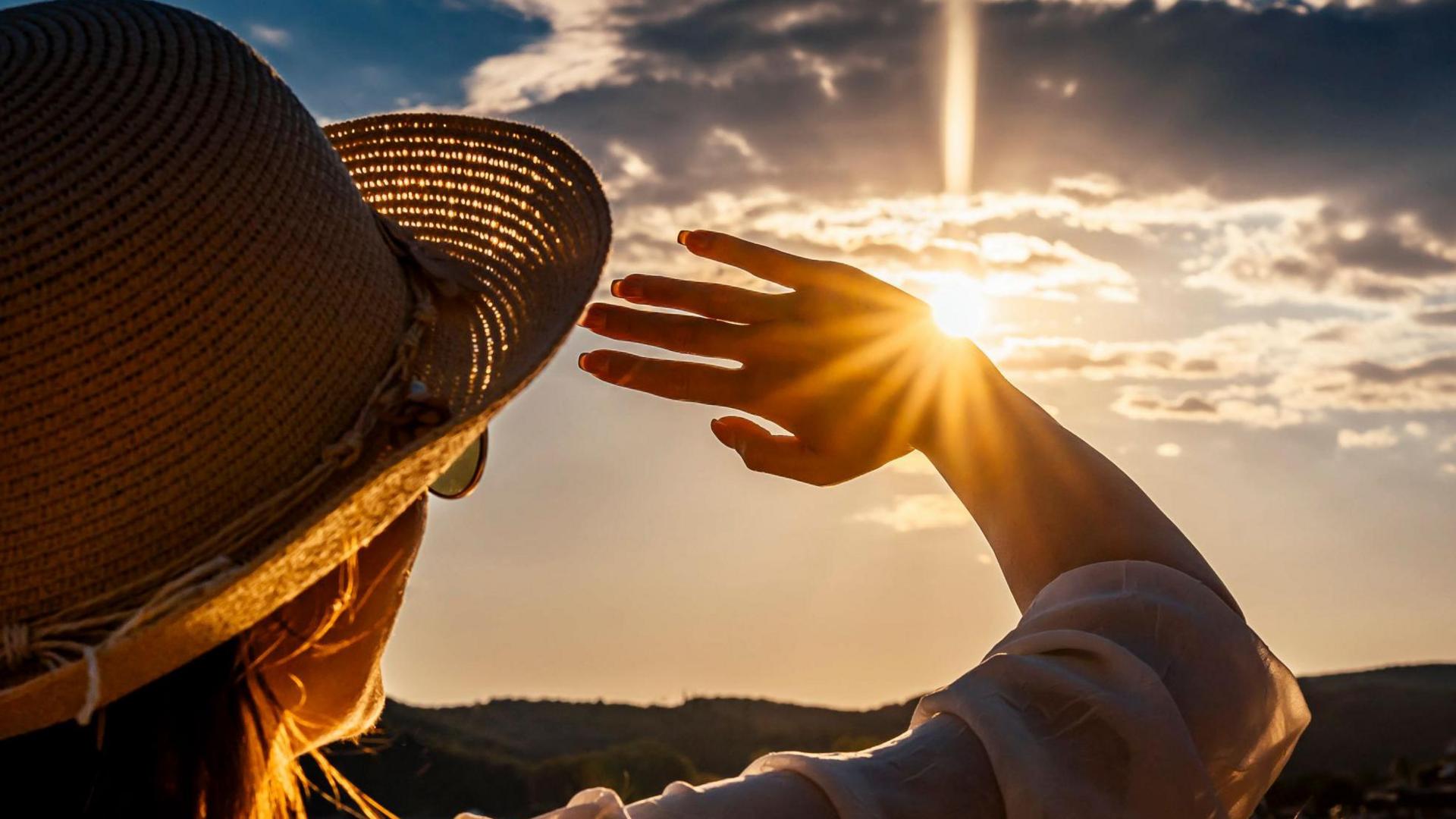
- Published22 May 2024
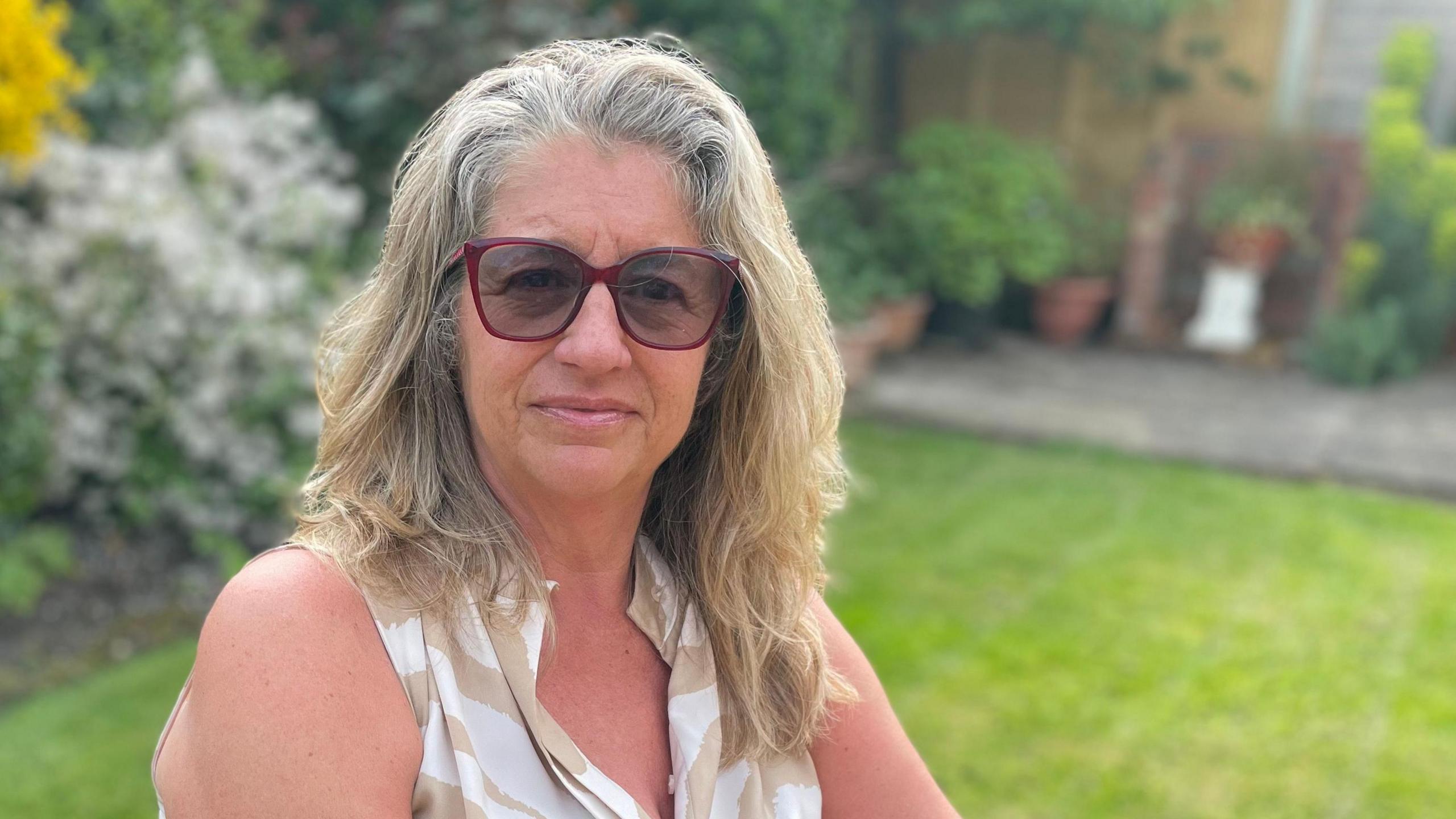
- Published30 April 2024
